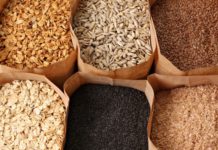Rising oil and gas prices impact various global industries. Agricultural professionals struggle to produce sufficient crop quantities as diesel prices increase. And yet, farmers must increase food production to support the growing global population.
Agricultural scientists and engineers search for sustainable solutions to rising diesel prices. They are developing new technologies and production practices to increase the cost efficiency of food. Increasing the global food supply and decreasing production costs may conserve vital resources.
How Diesel Impacts the Agricultural Industry
Rising diesel prices directly impact the agricultural industry by increasing operational costs. Researchers found the consumer price index (CPI) increased this year from 6.5% to 7.5%. Food costs may continue to rise as farmers’ diesel reliance remains consistent.
Diesel prices rose by nearly $2.00 this year. In May 2022, a gallon of fuel cost around $5.57, which is the highest diesel price in decades. Farmers in developing countries struggle to power agricultural production processes as fuel prices skyrocket.
Most farmers power their agricultural machinery with diesel. Professionals must slow their crop production rates if they are unable to afford fuel. Compromised global food sources directly impact the supply chain.
Agricultural professionals search for cost-effective solutions to supply chain limitations. Expanding affordable agricultural production is essential to society’s health and well-being.
What Causes Rising Diesel and Food Costs?
Rising diesel and food costs are partly due to global population expansions. There are over 7 billion individuals on the planet who rely on the agricultural sector to survive. The rising demand for crops directly impacts food production.
Farmers must charge higher prices for food to support crop production increases. Environmental changes also affect the agricultural sector. The effects of climate change interfere with crop production.
Rising global temperatures are increasing the evaporation rate, which places agricultural regions in prolonged drought periods. Individuals are reducing climate change effects by using biofuel. Farmers also must increase corn and rapeseed production to meet rising biofuel demands.
Another direct impact on diesel and food prices is Russia’s war on Ukraine. Many countries outsource their oil and gas from Russia. The country’s military is using more fuel supplies, decreasing the tradeable diesel supply.
Straying Away From Diesel
Farmers can reduce agricultural production costs by switching diesel power for renewable energy. Agricultural land is compatible with solar and wind power production. Limiting tree coverage and other environmental interference increases renewable energy efficiency rates.
Agricultural professionals can power their field equipment, vehicles, barns, and other farming components with renewables to lower their diesel reliance. Renewables are currently the most cost-effective energy sources on the market.
Farmers can produce affordable food supplies when using solar and wind power. They may also utilize renewable technologies to increase crop production rates. Individuals can expand low-light plant development using photovoltaic (PV) solar panels.
Agricultural professionals can plant low-light crops like tomatoes under surface-level panels. The panels may protect crops from the sun while producing affordable electricity. Increasing crop production decreases food costs.
Adopting Electric Equipment
Professionals can increase their farm’s compatibility with renewable energy by adopting electric field equipment. Environmental engineers developed electric excavators to support the sustainable transition away from fossil fuels. The vehicles contain a 300-kilowatt-hour battery pack to eliminate tailpipe emissions.
Farmers can power their electric equipment with renewable energy to reduce operating costs. Relying on clean electricity instead of diesel significantly lowers crop production prices. It also helps farmers increase crop yields by reducing ongoing expenses.
Rising diesel prices may cause more farmers to transition away from diesel-powered equipment. It also can influence sustainable advancements in the agricultural sector.
The Agricultural Industry’s Green Future
Adopting renewable energy and electric equipment may help farmers increase their financial success. Eco-conscious consumers increase the demand for sustainable goods on the market. Farmers can gain a leg up on their competition by investing in low-impact technologies.
Green agricultural technologies also decrease crop production costs, which helps farmers expand the global food supplies. Renewable energy, electric equipment, and other cost-effective technologies can support farmers with minimal resources. Agricultural professionals in developing nations may also maintain sufficient crop production rates using green technologies and techniques.

Jane is an agriculture and environmental journalist and the founder and editor-in-chief of Environment.co, where she covers sustainability and eco-friendly living.








